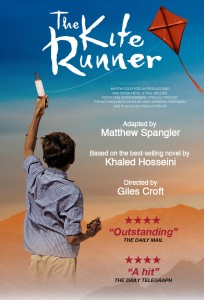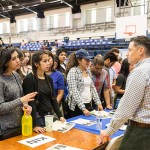Department of Journalism Lecturer Lisa Fernandez was recognized and applauded by NBC Bay Area news for the “small act of kindness” that helped student Brandon Beebe get back into the classroom after a series of financial setbacks left him homeless. Fernandez reached out to her Facebook community who “within minutes jumped in and asked what they could do to help,” Fernandez reported—help that ranged from direct financial assistance to connections to other sources of financial aid and housing assistance. For more of the story, including information about Beebe’s GoFundMe page.
Mother Nature Network interviewed Department of Physics and Astronomy Lecturer Friedemann Freund about the “earthquake lights” that appeared over New Zealand during the peak of the recent 7.8 magnitude earthquake. Freund, who co-authored a paper on the topic, theorizes that earthquake lights result when certain types of rock, under stress, produce electrical charges. Read more online.
Published this month through Cornell University’s East Asia Series: Department of History Assistant Professor Xiaojia Hou’s Negotiating Socialism in Rural China: Mao, Peasants and Local Cadres in Shanxi 1949-1953, the first monograph in English about the beginnings of China’s agricultural collectivization. Hou specializes in research about China’s socialist transformation in the 1950s and joined SJSU’s history faculty in the fall of 2015.
Dean Walter Jacobs, College of Social Sciences, was elected to the executive board of the Council of Colleges of Arts and Sciences, a national association based at the College of William and Mary in Williamsburg, Va. The council provides professional development programming to its member deans and works to sustain the arts and sciences as a leading influence in American higher education.
With help from her public relations class, Department of Journalism Lecturer Halima Kazem is spearheading a fundraiser for Syrian refugees living in a refugee camp in Lesvos, Greece, selling the brightly colored bags those refugees fashioned from life vests worn while fleeing their country by boat. The bags sell between $14 and $40 and Kazem hopes to sell all 130 bags by Christmas, raising approximately $3,000 for the refugees. For more information, contact Kazem at halima.kazem@sjsu.edu.
Department of Biomedical, Chemical and Materials Engineering Professor Claire Komives’s antivenom research made the news again in a Pensacola News Journal report extolling the role of the possum in developing snakebite antivenom. (Possums are immune to the poison inflicted by snakebites.) Komives has previously presented her research findings at the American Chemical Society’s national conference.
Both Popular Science and inverse.com noted iSchool Lecturer Susan Maret’s Freedom of Information Act request regarding the role of the Defense Advanced Research Projects Agency (DARPA) in “the development and application of Hybrid Insect Microelectromechanical Systems.” The 88-page document Maret received in response details the feasibility of using flying insects for purposes of espionage. Read more online and at Maret’s blog.
Department of Communication Studies Associate Professor Matthew Spangler’s adaptation of Khaled Hosseini’s bestselling novel The Kite Runner will open at Wyndham’s Theatre in London’s West End on December 21 and run through March 11, 2017. Spangler’s adaptation was staged at San José Repertory Theatre in 2009 for its U.S. premiere and at the Nottingham Playhouse in 2013 for its European premiere.
Professor Emeritus Karl Eric Toepfer, Department of Television, Radio, Film and Theatre, is a contributing writer to the Routledge Encyclopedia of Modernism, an online research resource. Toepfer’s articles focus on two important figures in modern dance in Germany, Dore Hoyer and Harald Kreutzberg.
The San Jose Mercury News interviewed Dean Lisa Vollendorf, College of Humanities and the Arts, about the inspiration behind the Hammer Theatre Center and the city/university collaboration that resulted in an approximately $1 million refurbishment of the San José Repertory Theatre, turning that facility into a first-class performing arts venue for SJSU students and the larger South Bay community.
NPR affiliate KTEP in El Paso, Texas, interviewed Department of Physics and Astronomy Professor Ken Wharton for a Science Studio: Quantum Theory segment that aired on November 20. Listen online.
Professor Fritz Yambrach, Department of Nutrition, Food Science and Packaging, is concept designer and team organizer of the Fritz Water Vest, a flexible device designed to help populations in disaster or impoverished areas more easily transport water. The vest is currently being beta tested in Ethiopia, Haiti, the Dominican Republic and Burundi.




